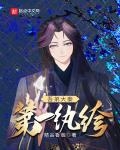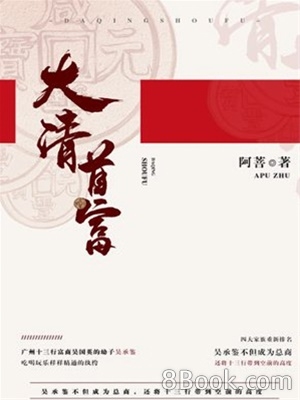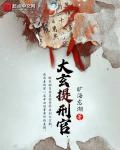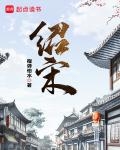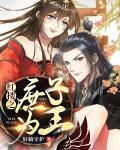Chapter 166: The Two Parties Meeting Face to Face (VI)
"Stand still. We are our own people shooting at each other, so why should we be afraid?"
Listening to the captains' calls to the new recruits, Huo Chong wanted to look back, but he refrained from doing so. Since the captains were still shouldering their responsibilities, there was no need to put meaningless pressure on them.
However, throughout the battlefield, Huo Chong's attention was completely focused on the artillery and the new recruits in the rear. Huo Chong was not too concerned about the troops at the front line. This was because Huo Chong believed that these troops, who had fought four or five battles, could not directly defeat the front army formed by the hollow square formation with the current level of the Qing army.
Sure enough, the battle situation developed just as Huo Chong had imagined, the Qing army's matchlock muskets marched forward. Before they could light the fire, the Han musketeers' percussion cap muskets began to show their power.
The Qing army's matchlock guns were also called bird guns, which meant they could hit flying birds. The barrels of these guns were slender, but the lengths varied. The thousands of bird guns seized by Huo Chong ranged from more than one meter to two meters.
Huo Chong's musket was derived from these bird guns. The barrel of a bird gun was cut into two iron tubes of about 85 cm. The outside was wrapped with red-hot wrought iron bars, and the inner wall of the barrel was trimmed with a hydraulic boring machine and a quenched high-carbon steel tool.
Because the barrels were shorter, this kind of repair was much easier than the Qing Dynasty's repair of barrels that were more than one meter long or nearly two meters long. Even so, Huo Chong prepared for several years and seized a lot of guns, and only then did he barely make more than 5,000 musket barrels.
As for the rest, it is much simpler. There is no shortage of wood suitable for making wooden stocks in China, and many things are small pieces. Since the barrel is double-layered and quite strong, the sleeve part of the sleeve bayonet can be made larger and thicker, that is, stronger.
Huo Chong has a clear conscience regarding the equipment of the Han army. The rest depends on the performance of the army itself.
Just as Huo Chong thought, the Manchu bird guns were quite effective in scaring ordinary people, but when they were fired at real troops, problems immediately emerged. At a distance, the accuracy was basically nonexistent.
Huo Chong's short-barreled rifle theoretically has a short range because of its short barrel. However, in order to prevent the outflow of technology, Huo Chong did not manufacture conical bullets. However, he secretly ordered the core technicians to draw two rifling grooves in the barrel. However, the round bullet was still used.
With just this one secret modification, plus decent internal processing of the barrel, the accuracy of the short barrel increased greatly, and the rate of fire was more than ten times that of the Qing army.
The gunpowder captured from the Qing army was processed into granular gunpowder, which burned violently under the ignition of the percussion cap, and the gunpowder gas pushed the lead bullets also captured from the Qing army. Rows of Qing soldiers were killed or wounded.
On the other hand, the Qing army, the front row fell , and the back row did not make up for it. Those Qing soldiers stood at a safer distance to shoot, because the distance was far, the accuracy was worse. At least hundreds of shots were fired over there, but not a single person was injured on Huo Chong's side.
Huo Chong watched the captains being excited by the roar of the battlefield and the one-sided battle, shouting orders to their subordinates. Because he didn't get enough rest, Huo Chong covered his mouth and yawned.
I don't know who saw this action, but fortunately he was brave enough to write a diary. Anyway, in later film and television works, whenever this classic yawning action appears, it goes without saying that the Han army must be in an absolute advantage.
The same is true in reality, the battles between the two sides are not on the same level at all. Huo Chong's army has won several victories in succession with more than a thousand people, and is no weaker than the Qing army on the opposite side in terms of the degree of battlefield accustomed.
Precisely because neither side is the well-forged army of modern times, this slight difference in experience has a multiplier effect.
Seeing the enemy being beaten to the ground, the Han army's fighting spirit was even stronger. The Qing army became more and more depressed and retreated further and further. Moreover, the gunpowder smoke used by the Qing army's matchlock guns was very large. At this time, the Qing army's position was already obscured by a layer of thick white smoke, and only some shadowy figures could be seen.
Just when Huo Chong thought the Qing army might retreat, he heard the rumbling of horse hooves. The Henan general decisively sent out cavalry to break the deadlock.
"Artillery!" Huo Chong gave the order.
The artillery had fired a lot of shots before, but they all missed the target. Huo Chong didn't want to use artillery to deal with the Qing army. If they could drive the Qing army away at the beginning, it would be the most efficient choice.
At this time, the route of the Qing cavalry's attack was exactly in the direction of the artillery just deployed. The war horses spread their four hooves and galloped out, and a barrage of three-pound artillery shells flew towards them.
Huo Chong didn't understand before, because they were all solid shells and wouldn't explode. A shell weighing three kilograms was actually no different from a shell weighing one kilogram. After a real experiment, Huo Chong finally understood where the problem was.
The current gun barrel has insufficient pressure bearing capacity, so the thicker three-jin cannon can fire the shells farther. The kinetic energy of a three-jin shell is obviously three times that of a one-jin shell. In terms of range alone, a three-jin shell can fly farther. It also has greater destructive power.
Sure enough, a shell hit the enemy and first smashed the head of a hapless Qing soldier like a watermelon, and then knocked another Qing soldier next to the hapless one off his horse. Just being hit by a three-jin cannon was enough to break bones and tendons. The second Qing soldier was basically dead.
Each artillery group has 16 members, especially the leaders, who must have elementary school level, that is, fourth grade level. At least know what a triangle and a quadrilateral are. Even if they are not yet able to learn trigonometric functions, they have attended similar courses and know that the trajectory of the artillery shell is an arc.
The firing of the cannons was quite impressive. Huo Chong simply walked quickly to the cannon crew and watched them fire at the Qing army.
Huo Chong was quite satisfied with several of the artillery crew members who were responsible for observation and positioning. At least in this actual combat, their feeling was right.
Perhaps it was because Huo Chong did not interfere too much with the commanders' work. When Huo Chong saw that thirty or forty Qing soldiers had fallen off their horses and all the cavalrymen were fleeing into the distance, the sound of a charge was heard here.
The infantrymen in the front row of the Han army pulled out their bayonets, put them on the thick muzzles of their guns, and then rushed towards the Qing army's positions with the captains wielding broadswords and revolvers.
The Qing army had long been shaken by the firearms of the Han army and had no intention of persisting. At this time, seeing the Han army charging like wolves and tigers, they initially stayed in their positions.
When the Han army rushed to them, they fired another volley. The Qing army immediately collapsed and turned around and ran away. The Han army used bayonets to stab the Qing army who were not running fast enough, chasing the Qing army and making them drop all their weapons and flee towards the Qing army camp.
Watching this battle, Huo Chong felt relieved. This was indeed the performance of the Qing army facing the modern European and American armies.
Since the Qing Dynasty could not make any progress in weapons, let alone development in industry, Huo Chong roughly understood his future focus.
Creating more powerful weapons is certainly useful, but this is no longer the top priority. The most important thing at the moment is how to increase the number of troops that can and dare to fight.

